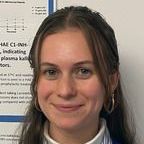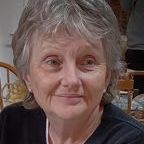Immunology
Regulatory lymphoyctes in transplantation
Immunology
Regulatory lymphoyctes in transplantation
9am – 9.30am BST, 23 September 2025 ‐ 30 mins
Immunology
Abstract
- Overview of regulatory lymphocytes (T and B cells) and role in immune system
- Review of literature on Importance in transplantation
- Potential use as a biomarker for monitoring patients after a transplant
Speakers

HLA disease associations – ankylosing spondylitis and coeliac disease
Immunology
HLA disease associations – ankylosing spondylitis and coeliac disease
9.30am – 10am BST, 23 September 2025 ‐ 30 mins
Immunology
Abstract
This presentation explores the pivotal role of human leukocyte antigen (HLA) genes in the pathogenesis of Ankylosing Spondylitis (AS) and Coeliac Disease (CD). HLA associations with autoimmune conditions are well-documented, and understanding these relationships provides critical insights into disease susceptibility and progression. This talk will summarise current knowledge of the role of the HLA antigens in the pathogenesis of these diseases.
Ankylosing Spondylitis (AS) is a chronic inflammatory autoimmune disorder primarily affecting the axial skeleton, sacroiliac joints, and, in some cases, peripheral joints. The disease is strongly associated with the HLA-B27 gene, found in over 90% of AS patients. HLA-B27 is a class I MHC molecule involved in antigen presentation to CD8+ T cells, and its role in AS pathogenesis is complex and still to be fully elucidated. Several mechanisms have been proposed to explain this association, including the arthritogenic peptide hypothesis, misfolding of HLA-B27 and HLA-B27 homodimer formation. The talk will cover how these mechanisms, as well as other mechanisms may cause AS.
Coeliac Disease (CD) is an autoimmune disorder of the small intestine triggered by dietary gluten. Over 95% of affected individuals express specific human leukocyte antigen (HLA) class II molecules HLA-DQ2.5, DQ2.2, or DQ8, which are central to disease pathogenesis. This presentation will explore how these HLA-DQ molecules present modified gluten peptides to CD4+ T cells, leading to the activation of cytotoxic T cells and progression of the disease. The presentation will also cover the risk of developing CD based on the individuals HLA-DQ type. The talk concludes with a discussion of emerging therapeutic strategies for CD demonstrating the many factors involved in the disease.
Speakers

Dr Nicola Speirs
Clinical Scientist, Histocompatibility & Immunogenetics Laboratory, SNBTS, Royal Infirmary of Edinburgh
UK NEQAS and BSHI guideline: Laboratory testing and clinical interpretation of HLA genotyping results supporting the diagnosis of coeliac disease
Immunology
UK NEQAS and BSHI guideline: Laboratory testing and clinical interpretation of HLA genotyping results supporting the diagnosis of coeliac disease
10.30am – 11am BST, 23 September 2025 ‐ 30 mins
Immunology
Abstract
The lecture will share details of why UK NEQAS created a test of guidelines to inform genetic testing in the diagnosis of Coeliac Disease. It will include information on the contents of the guidelines, the impact and the benefits of collaboration in EQA.
Speakers

New LIMS network set up and pre-analytical challenges for testing pathways. C1 inhibitor deficiency test investigations
Immunology
New LIMS network set up and pre-analytical challenges for testing pathways. C1 inhibitor deficiency test investigations
11am – 11.30am BST, 23 September 2025 ‐ 30 mins
Immunology
Learning outcomes
The learning outcomes for this lecture will include:
- Understanding the Pathophysiology and Clinical Presentation of C1INH deficiency.
- Describing the role of C1 INH in the complement and kallikrein-kinin systems.
- Identifying the hallmark symptoms of C1 INH deficiency and potential triggers.
- Reviewing current Treatment options and Challenges
- Exploring alternative treatment options and research directions
Speakers
Functional plasma kallikrein assay as a diganostic tool for bradykinin-mediated angioedema
Immunology
Functional plasma kallikrein assay as a diganostic tool for bradykinin-mediated angioedema
11.30am – 12pm BST, 23 September 2025 ‐ 30 mins
Immunology
Learning Outcomes
The learning outcomes for this lecture will include:
1. Overview of Hereditary Angioedema (HAE) and its Classifications:
This lecture will provide an in-depth understanding of Hereditary Angioedema (HAE), including the various clinical classifications of the disease. Specific focus will be given to HAE with normal C1 esterase inhibitor (HAE-nC1-INH), a subtype characterised by normal C1-INH levels. The audience will be introduced to recent discoveries of genetic mutations associated with HAE-nC1-INH, expanding the understanding of its underlying molecular mechanisms.
2. Emerging Biomarkers in HAE:
The audience will gain insight into ongoing research aimed at identifying novel biomarkers involved in HAE pathophysiology. This lecture will focus on how these biomarkers could be used to improve HAE diagnosis and patient management, particularly in cases of HAE-nC1-INH where traditional diagnostic markers (such as C1-INH levels) are inconclusive.
3. The Role of Plasma Kallikrein in the Contact System Pathway:
The lecture will also explore the role of plasma kallikrein in the contact system pathway and how its dysregulation contributes to the pathophysiology of HAE. The interaction between plasma kallikrein and other components of the bradykinin pathway will be discussed and the audience will learn how this relates to the clinical manifestations of HAE
4. Plasma Kallikrein Assay as a Diagnostic Tool:
The lecture will cover the potential use of a plasma kallikrein assay as a diagnostic biomarker for HAE-nC1-INH. The lecture will present a proposed methodology for measuring activated plasma kallikrein. Patient data from this proposed assay, comparing different types of HAE will be reviewed, illustrating the potential use of this assay for differentiating HAE subtypes and assessing HAE patients on treatment.
Speakers

Ellie Gerred
Senior Clinical Scientist, East & South East London NHS Pathology, Barts Health NHS Trust
Anti-tumour necrosis factor (TNF) drugs/ antibodies – an external quality assessment perspective
Immunology
Anti-tumour necrosis factor (TNF) drugs/ antibodies – an external quality assessment perspective
9am – 9.30am BST, 24 September 2025 ‐ 30 mins
Immunology
Learning outcomes
- TNF drugs and antibodies-utility
- Variation in testing practices
- Harmonisation of TNF antibodies/drugs
Speakers
Autoimmunity and allergy: Our experience of reuniting immunology
Immunology
Autoimmunity and allergy: Our experience of reuniting immunology
9.30am – 10am BST, 24 September 2025 ‐ 30 mins
Immunology
Learning outcomes
- Use of workflow analysis tools
- The change control process
- What we've learnt and what we'd do differently next time - pitfalls you may be able to avoid
Speakers
A data-driven strategy for myositis antibodies testing
Immunology
A data-driven strategy for myositis antibodies testing
10.30am – 11am BST, 24 September 2025 ‐ 30 mins
Immunology
Abstract
Myositis specific antibodies (MSAs) play a valuable role in the diagnosis, subclassification and prognosis of idiopathic inflammatory myopathies (IIM), however, their clinical utility is undermined by the perceived poor performance of commercial assays used in routine immunology laboratories. A survey by the International Myositis Assessment & Clinical Studies (IMACS) Group in 2020 showed only 64% of Clinicians were confident in the results, with concerns raised about false-positive and false-negative results.
This presentation will provide an overview of IIM, MSAs and the challenges associated with MSA testing. Preliminary results will be presented from an 18-month service improvement project conducted at Nottingham, which evaluated the performance of three commercial MSA assays - Euroimmun Immunoblot, Medical & Biological Laboratories (MBL) ELISA's and Werfen particle-based multi-analyte technology (PMAT).
Learning outcomes
Delegates will learn:
- Why it is important to test for myositis antibodies in idiopathic inflammatory myositis (IIM).
- Performance of Euroimmun Immunoblot, MBL enzyme linked immunosorbent assays (ELISAs) and Werfen particle-based multi-analyte technology (PMAT) methodologies for myositis antibodies by presentation of data from a service improvement project.
- I hope to suggest the best testing algorithm based upon results from the service improvement project - delegates can reflect on their own laboratories practice.
Speakers
Rebecca Gama Paulo BSc(Hons), MSc, DipRCPath
Principal Clinical Scientist, Nottingham University Hospitals NHS Trust
Evaluation of a new testing algorithm for alpha-1 anti-trypsin deficiency (A1ATD) detection
Immunology
Evaluation of a new testing algorithm for alpha-1 anti-trypsin deficiency (A1ATD) detection
11am – 11.30am BST, 24 September 2025 ‐ 30 mins
Immunology
Speakers

Update on national project for anti-GBM disease testing
Immunology
Update on national project for anti-GBM disease testing
11.30am – 12pm BST, 24 September 2025 ‐ 30 mins
Immunology
Learning outcomes
Delegates will understand:
- The clinical impact of anti-GBM disease
- The impact of limitations and risks associated with diagnostic testing
- The details of the UK collaborative project and how to participate
Speakers
Specialist Portfolio & HSD Q&A
Immunology
Specialist Portfolio & HSD Q&A
12.45pm – 1.45pm BST, 24 September 2025 ‐ 1 hour
Immunology
Speakers
Penny Feather
Immunology Laboratory Manager, Path Links Blood Sciences, Northern Lincolnshire & Goole Hospitals NHS Foundation Trust
Immunology in iLFT – our fi rst 5 years experience in NHS Tayside
Immunology
Immunology in iLFT – our fi rst 5 years experience in NHS Tayside
2pm – 2.30pm BST, 24 September 2025 ‐ 30 mins
Immunology
Abstract
Intelligent liver function testing is a multidisciplinary, algorithm driven laboratory testing pathway for general practise. From a single request we deliver biochemistry/virology and immunology results along with a diagnosis and a recommended care pathway. This allows appropriate referral of patients to secondary care plus the recognition of which patients can remain in primary care. It prevents multiple requests and has been shown to prevent at least 6 additional visits to the general practitioner.
The immunological component of the pathway is found at the end of the algorithm where we add on liver autoantibodies and ANA to patients with the designated levels of alkaline phosphatase/gamma-glutamyl transferase and alanine aminotransferase plus significantly elevated fibrosis scores. The presentation will discuss the utility of this pathway for identification of patients with likely primary biliary cholangitis (PBC) and autoimmune hepatitis (AIH).
Speakers
Dr Liz Furrie
Consultant Clinical Scientist & Clinical Lead, NHS Tayside, Ninewells Hospital and Medical School
MGUS monitoring - iterative improvement of value
Immunology
MGUS monitoring - iterative improvement of value
2.30pm – 3pm BST, 24 September 2025 ‐ 30 mins
Immunology
Abstract
Monoclonal gammopathy of undetermined significance is a precursor condition that, with time, will inevitably lead to myeloma. Both of this conditions therefore form part of the monoclonal gammopathy care pathway.
First identifying monoclonal gammopathy patients whilst they are in this precursor state is a desired scenario compared with first identification when the patient has confirmed myeloma. This is due to the often lost opportunity to mitigate and potentially avoid altogether, the significant morbidity that can affect the patient for the rest of their life. In addition to this, patient's presenting with myeloma on the first day of identification have poorer prognosis and cost healthcare more.
Learning outcomes
Speakers
New uses for Flow Cytometry in clinical immunology
Immunology
New uses for Flow Cytometry in clinical immunology
3pm – 3.30pm BST, 24 September 2025 ‐ 30 mins
Immunology
Abstract
The flexibility of next generation multi-colour flow cytometry (MFC) analysers and the broad array of reagents now available for the detection of specific protein targets makes it a powerful tool for development of diagnostic and monitoring tests for patients with haematological and immune disorders.
In recent years, functional MFC testing by routine immunology laboratories including those in the West Midlands has advanced to encompass screening tests that aid in the diagnosis of primary immunodeficiency. For example, the recent development of neutrophil CD62-Ligand shedding assays facilitates diagnosis of toll-like receptor signalling defects that predispose children to life-threatening invasive pneumococcal disease. Reducing the delay to diagnosis of specific molecular disorders (IRAK-4/MYD88 deficiency) allows for rapid initiation of therapeutic interventions (prophylactic antibiotics, vaccination, immunoglobulin) that greatly improve patient outcomes.
MFC has also been utilised locally at the Clinical Immunology Service (UoB) to develop measurable residual disease (MRD) testing for patients with haematological malignancies such as acute myeloid leukaemia (AML). MRD detection relies on use of combinatorial protein marker expression to define highly variable leukaemia-associated immunophenotypes (LAIPs), which are used as targets to quantify and track residual leukemic cells in the bone marrow. MFC-MRD is the most important predictor of impending relapse in a majority of AML patients.
LAIP analysis may miss or underestimate the leukemic burden due to protein marker limitations previously imposed by multi-tube 8-colour cytometry. The AML MRD flow assay has recently been validated as a high-parameter (21-marker) next generation spectral cytometry panel compatible with the Cytek Northern Lights-CLC, the first CE-IVD marked spectral instrument. Implementing spectral technology for clinical use has presented considerable challenges beyond those of conventional cytometry. However, transitioning to a single-tube approach has streamlined the testing service, with significant improvements in data quality facilitating accurate interpretation of clinical results.
Learning outcomes
- Review the current repertoire of Immunology flow cytometry testing
- Understand advances in functional testing
- Forecast how flow cytometry will contribute to precision medicine
Speakers
Dr Nicholas McCarthy
Clinical Scientist, Clinical Immunology Service, University of Birmingham
Newborn screening for severe combined immunodeficiency: The role of the flow cytometry laboratory
Immunology
Newborn screening for severe combined immunodeficiency: The role of the flow cytometry laboratory
4pm – 4.30pm BST, 24 September 2025 ‐ 30 mins
Immunology
Abstract
Severe combined immunodeficiency (SCID) refers to a group of disorders that results in the inability to produce functional lymphocytes. A haematopoietic stem cell transplant (HSCT) is often the only treatment option for SCID patients, with their success often depending on how early the condition is detected. This led to the initiation of the newborn screening for SCID trial in 2021.
Flow cytometry is a technique used to identify different types of cells by measuring its size, complexity and fluorescence characteristics. Lymphocyte subsets by flow cytometry allow a broad and quick assessment of a patient's immune system to identify the absence of any immune cells. As well aiding in the diagnosis of SCID, the flow cytometry service also provides tests in the monitoring of the condition post HSCT to evaluate the success of the engraftment.
This presentation will aim to display the benefit of the newborn screening for SCID trial by utilising the flow cytometry results for two patients throughout their HSCT. Additionally, it will exhibit the findings of research into two new antibodies to aid in the diagnosis of two different types of SCID that are currently sent away to external hospitals.
Learning outcomes
- An insight into the experience of a completing the Diploma of Specialist Practice (DSP)
- The value of completing the DSP when working in a specialist section
- The concept of newborn screening for severe combined immunodeficiency and role of the flow cytometry laboratory
- Example of how this impacted a real life case
Speakers
Emily Jones
Specialist Biomedical Scientist, Newcastle upon Tyne Hospitals NHS Foundation Trust
A rare case of Artemis severe combined immunodeficiency
Immunology
A rare case of Artemis severe combined immunodeficiency
4.30pm – 5pm BST, 24 September 2025 ‐ 30 mins
Immunology
Abstract
Artemis Severe Combined Immunodeficiency (Artemis SCID) is a rare form of autosomal recessive SCID caused by mutation in the DCLRE1C gene, which encodes the Artemis protein. Artemis is a DNA repair enzyme essential for the repair of double-strand breaks during the V(D)J recombination process necessary for the development of functional T and B lymphocytes, critical components of the adaptive immune system. The presentation will introduce Artemis SCID in the context of a real-life paediatric clinical case study.
Learning outcomes
This will be a presentation of a rare Artemis SCID clinical case with the aim to fulfil the following learning outcomes for delegates:
- Introduction to Artemis SCID through a patient case
- Overview of the clinical presentation of SCID with emphasis on the Artemis form
- Importance of combining clinical and laboratory investigations in the identification of SCID
- Importance of rapid detection and clinical intervention/management in SCID
- Current and future treatments for Artemis SCID
Speakers
Kristina Emsell-Needham MSc DipRCPath
Senior Clinical Scientist, York & Scarborough Teaching Hospitals NHS Foundation Trust
Antinuclear antibodies: current practice and impact of International Consensus on Antinuclear Antibody Patterns (ICAP) nomenclature
Immunology
Antinuclear antibodies: current practice and impact of International Consensus on Antinuclear Antibody Patterns (ICAP) nomenclature
9am – 9.30am BST, 25 September 2025 ‐ 30 mins
Immunology
Learning outcomes
- Variation in testing practices
- Harmonisation of anti-nuclear antibodies
- ICAP system
Speakers
HSD management case: The evaluation of the Svar functional complement assay on the Dynex DS2
Immunology
HSD management case: The evaluation of the Svar functional complement assay on the Dynex DS2
9.30am – 10am BST, 25 September 2025 ‐ 30 mins
Immunology
Abstract
- Introduction on complement and complement testing.
- The functional complement assays previously used in laboratory and why a new method was introduced.
- The performance characteristics evaluated in the verification and validation of the Svar ELISA method.
- Experience of the change management, outcomes and results of the new method.
Speakers
Intrathecal inflammation, the neuroimmunology lab’s role
Immunology
Intrathecal inflammation, the neuroimmunology lab’s role
10.30am – 11am BST, 25 September 2025 ‐ 30 mins
Immunology
Abstract
The Walton Centre Neuroimmunology lab provides insight into neuroinflammation by offering the classical tests oligoclonal bands by isoelectric focussing and CSF index. With the emergence and characterisation of CSF κ Free Light Chain, recent work has explored the benefits of alternative laboratory markers of intrathecal inflammation with practically global applications. CSF κ Free Light Chain has been recommended for the next McDonald Criteria for Multiple Sclerosis diagnosis. This presentation will introduce the many forms in which CSF κ Free Light Chain can be determined and contextualise its use in the next phase of neuroinflammation diagnostics. The presentation will summarise literature and present a Walton Centre study.
Learning outcomes
Delegates will understand the:
- The clinical lab's role in diagnosis of neuroinflammatory conditions such as multiple sclerosis.
- The use of isoelectric focussing, hyperbolic reference curves and nephelometry.
- Future developments of CSF analysis for neuroinflammation
Speakers

Neurofilament light chain: An emerging biomarker for neurodegenerative disease
Immunology
Neurofilament light chain: An emerging biomarker for neurodegenerative disease
11am – 11.30am BST, 25 September 2025 ‐ 30 mins
Immunology
Abstract
The management of neurological diseases is complex and often burdensome for patients. There is a clear clinical need to be able to monitor patients for signs of axonal damage or degeneration. Recent evidence and clinical practice have identified the measurement of neurofilament light chain (NfL) as a tool to better diagnose and monitor patients with such neurological conditions as multiple sclerosis, Alzheimer’s disease and Parkinson disease.
Generally, the sample type required for analysis is CSF, which is obtained via lumbar puncture. Advances in technology have allowed more sensitive assays to be developed which allow NfL to be detected at very low level in serum. This benefits the patient in several ways, such as reducing the number of invasive procedures and providing a simple but effective way to monitor progression and treatment of the underlying condition.
Learning outcomes
Delegates will gain a knowledge of:
- What neurofilament light chains are.
- Why increased levels are observed in certain neurological diseases.
- The different methods available for testing.
- Understand that the availability of this test has a wide range of benefits for patients undergoing diagnosis and monitoring of conditions such as Motor Neurone Disease.
Speakers

Kirsty Swallow
Principal Clinical Scientist, Sheffield Teaching Hospitals NHS Foundation Trust
Clinical aspects of immune-mediated ataxia
Immunology
Clinical aspects of immune-mediated ataxia
11.30am – 12pm BST, 25 September 2025 ‐ 30 mins
Immunology
Abstract
Immune mediated ataxias are increasingly being recognised and account for a substantial number of progressive ataxias. The discovery on novel pathogenic antibodies and the development of diagnostic criteria for primary autoimmune cerebellar ataxia (PACA) have been important milestones in the field. The talk will cover the commonest immune ataxias, discuss diagnostic aspects and their management.
Speakers

Professor Marios Hadjivassiliou
Consultant Neurologist, Academic Director of the Academic Department of Neurosciences, Sheffield Teaching Hospitals NHS Foundation Trust, University of Sheffield
One patient’s perspective of an MS diagnosis
Immunology
One patient’s perspective of an MS diagnosis
2pm – 2.30pm BST, 25 September 2025 ‐ 30 mins
Immunology
Learning outcomes
Delegates will understand the importance of:
- There is no one size fits all in how a patient reacts to a diagnosis of a chronic condition
- Moving away from text book treatments to look at each person and their needs
- Giving patients choice in treatments.
- Helping patients have a realistic expectation of disease progression.
Speakers

Life’s good, it’s the disease that’s the problem
Immunology
Life’s good, it’s the disease that’s the problem
2.30pm – 3pm BST, 25 September 2025 ‐ 30 mins
Immunology
An inspirational true story about love, courage and determination delivered by award winning, philanthropic author Hazel Carter.
It was devastating news when Hazel’s husband, Alan, was told he had incurable motor neurone disease (MND) at age 62, but the disease did not stop the couple in their tracks.
Learn how they reacted to diagnosis, the drug trials Alan went on, and how the mindset the couple adopted enabled them to stay strong and enjoy some amazing adventures, even when Alan became 100% paralysed.
Speakers

Living with Gluten Ataxia – my personal journey
Immunology
Living with Gluten Ataxia – my personal journey
3pm – 3.30pm BST, 25 September 2025 ‐ 30 mins
Immunology
Abstract
This is the real-life experiences of living 24/7 with this autoimmune, neurological and progressive condition. It demonstrates the challenges many sufferers go through while trying to find a local specialist who understands Ataxia, and the importance of making your own informed choices when faced with doctors who generally know little about Gluten Ataxia.
During these years many tests were carried out, all were negative, and it was suggested “there is nothing wrong with you” but feeling like this was “not normal” A diagnosis of “possibly Ataxia” was devastating. Joining a support group through Ataxia UK was the best outcome so far and a chance meeting with another member suggested that gluten can cause Ataxia.
Conducting her own research there were many aspects of Ataxia that were applicable but the one that stood out was how gluten can impact negatively on the cerebellum causing atrophy and Ataxia.
With the possibility of a Gluten Ataxia diagnosis there comes an understanding that “time is critical” to going gluten-free to reduce damage to the cerebellum. Knowing that time was not on her side, Carol decided to act and go gluten-free. The rest is history!
The difference between a Traditional and a True gluten-free diet, the life changing symptoms of Ataxia, red flags that can point to a diagnosis, are all areas that will be covered in this presentation.
Learning outcomes
Delegates will:
- Recognise red flags as early as possible for the best outcomes for the patient.
- Learn what tests are needed and when on the patient’s journey.
- Understand when to encourage a gluten free diet and provide dietary advice and support.
Speakers

Opening and Closing Plenary programmes












